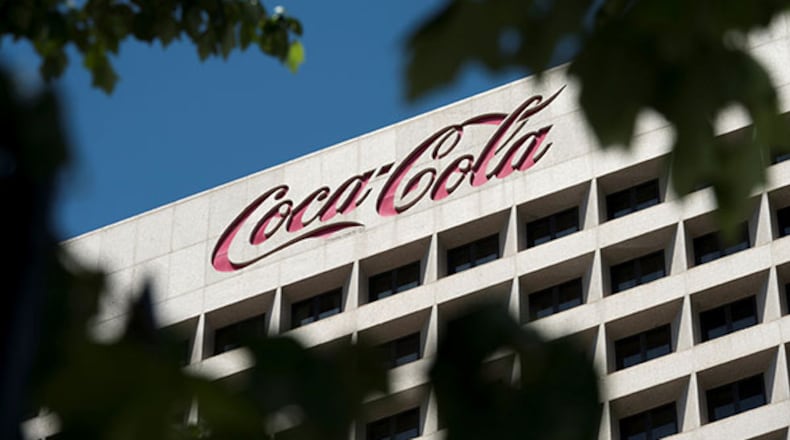Coca-Cola faced a global threat. The World Health Organization was trying to combat obesity by restricting the consumption of sugary sodas. So one iconic Atlanta institution sought help from another: the Centers for Disease Control and Prevention.
“Dear Barbara,” a longtime Coca-Cola senior executive began a June 2015 email to the head of the CDC’s heart disease and stroke prevention division. “How are you? Are you having a nice summer?”
Then, without transition, he got to the point: “Any idea how to have a conversation with WHO?” The WHO’s top officer is “influenced” by the Chinese government and “is against US,” the executive continued. It wasn’t clear whether “US” referred to the United States or to Coca-Cola.
Hours later, the CDC official wrote back, suggesting Coke work through “someone with connections” to a U.S.-backed AIDS relief program in Africa or through a charitable organization such as the Bill & Melinda Gates Foundation. “Many have close connections with the WHO regional offices,” she wrote.
“You gave some very good leads,” the Coke executive replied, concluding with an invitation: “Let us have dinner soon.”
The email exchange, cited in the current issue of The Milbank Quarterly, a public-health journal, illustrates the surprisingly intimate relationship between Coca-Cola and the CDC, two organizations with seemingly contradictory public-health agendas.
The journal also published emails in which a senior Coca-Cola executive asked the CDC and others to “amplify” the company’s contention that a sedentary lifestyle causes more health problems than sugary beverages. The same executive also corresponded with a CDC official about job prospects at Coke for another CDC employee.
“It’s clear that Coca-Cola tried to cozy up to the CDC and the CDC let them,” said Gary Ruskin, co-director of U.S. Right to Know, a nonprofit public-health research group based in Oakland, Calif. Ruskin obtained the emails through the federal Freedom of Information Act and state open records laws.
“It’s like regular, steady teamwork, as if this was what’s to be expected,” Ruskin said Wednesday. “If it were tobacco, it wouldn’t be OK. Why is it OK if Coke does it? It’s not.
“It’s like a local corruption story with global public health implications.”
Two members of Congress – Chellie Pingree of Maine and Rosa DeLauro of Connecticut, both Democrats – this week asked the inspector general of the U.S. Department of Health and Human Services to investigate the ties between Coca-Cola and the CDC. The department oversees the CDC.
“The emails show a troubling pattern of the company using access to high-level CDC officials to shape debates over public health policy directly involving the nutritional value of its products,” the lawmakers wrote.
“As we face an unprecedented obesity epidemic,” they added, “we must ensure that the public can trust the (CDC) to promote quality and objective data – particularly when it conflicts with powerful industry interests.”
In a statement, Coca-Cola said the emails at issue preceded the company’s commitments in 2015 and 2016 to disclose its funding for scientific studies on health and wellness and to limit its involvement with researchers. Coke vowed transparency after disclosures that it had paid for questionable research into obesity by an organization called the Global Energy Balance Network.
“Since that time, we’ve continued our journey to be a more helpful and effective partner in efforts to address the serious problem of obesity around the world,” the company said. “We’ve listened and learned from the public health community, our customers, associates and our consumers to understand the most appropriate role we can play to support the fight against obesity in a way that is credible, transparent and beneficial for everyone.”
A spokeswoman for the CDC, Kathy Harben, said in an email that the agency believes “public health and scientific advancement are best served when information is shared among other public health agencies, academic researchers, and private researchers in an open, timely, and appropriate way.”
“CDC’s ethical framework provides the checks and balances needed to keep the agency on track scientifically and ethically,” Harben wrote, “and CDC provides employees with resources to maintain ethical and scientific integrity.”
The Milbank Quarterly article was based on an analysis of 86 emails comprising 295 pages, all sent between 2011 and 2015. Ruskin said he believes the CDC has other correspondence with Coca-Cola that it has not yet released. Regardless, many of the emails show a blurring of the line between professional and personal contact.
In September 2014, for instance, a former Coca-Cola senior vice president of external affairs who headed a Coke-backed trade group asked a CDC official if he could introduce her to “a very delightful and intelligent young lady from Kenya” who was the company’s vice president for global scientific and regulatory affairs. “How is your schedule?” the executive wrote. “If you agree, give me some dates and I will arrange a nice dinner for the three of us.”
Three soon became five. The executive wrote that he also would be bringing “two close friends who would like to meet you.” Both were high-level Coca-Cola executives.
Later, in a thank-you email, the CDC official wrote: “What a lovely time we had on Saturday night. Many thanks, Alex, for your hospitality.”
The same CDC official, Barbara Bowman, advised the executive, Alex Malaspina, about lobbying the World Health Organization. Malaspina wrote in an email that he feared the WHO director-general would “continue to blast us with significant negative consequences on a global basis. This threat to our business is serious.”
Bowman retired from the CDC in 2016. Efforts to reach her were unsuccessful. Malaspina, who is retired, did not answer a call to his home.
Another executive, Rhona Applebaum, mixed business with personal favors in emails with CDC officials. Applebaum, then Coca-Cola’s chief science and health officer, promised one CDC official to share the resume of a CDC employee who hoped to land a government-relations job with the company.
In 2012, she enlisted another official’s help in sharing research that linked prolonged sitting to health problems. A few days later, she explained to the official why Mexico had been dropped from an international study of childhood obesity.
Mexicans consume more Coke products than the residents of any other country.
However, Applebaum wrote, “they don’t appear to understand the importance of routine and discipline as it relates to the data. It’s not a ‘manana’ exercise – it’s a ‘today’ requirement.”
Applebaum did not return a message left at her home Wednesday.
She retired from Coca-Cola in 2015 after news reports revealed her work with a nonprofit organization that published research suggesting Americans worried too little about exercise and too much about calories.
The nonprofit had not disclosed the source of its funding: Coca-Cola.
About the Author
The Latest
Featured




